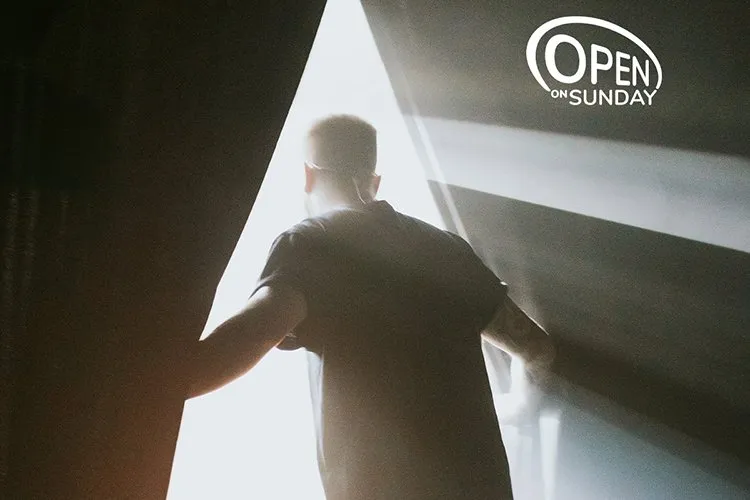
Photo Credit: Open On Sunday
As high-profile – and high-value – catalog deals continue to pour in, Open On Sunday (OOS) is working to make faster and more musician-friendly transactions the norm.
Despite rising rates and turbulence throughout the broader economy, a number of noteworthy song-rights sales have closed in 2023. With a tailwind of continued streaming resilience and strong catalog listenership, Hipgnosis kicked off the year with a reported $200 million agreement for Justin Bieber’s music IP, for instance. And well-established players such as Universal Music Group and Shamrock Holdings (which finalized a reported $200 million transaction with Dr. Dre), Primary Wave, and Reservoir Media have wrapped deals of their own.
Also part of the ever-changing catalog space are rising investors like Open On Sunday, which has executed approximately 70 transactions to date. Worth a total of over $60 million, the acquisitions include multimillion-dollar pacts with Taylor Swift songwriter Liz Rose, R&B legend Keith Sweat, and the estate of blues mainstay B.B. King.
Behind the sizable song-rights buyouts is a unique dealmaking approach that prioritizes transparency and expediency, Open On Sunday told Digital Music News. It’s hardly a secret that the catalog boom saw purchasers offering unprecedented multiples for in-demand bodies of work, though players like Open on Sunday are introducing more transparent and understandable methodologies for assigning valuations to certain IP. Just recently, Open on Sunday partnered with DMN to broaden its creator-friendly model.
The IP boom has also exacerbated some bad behavior in the dealmaking process, which Open on Sunday is squarely addressing.
Amongst the most nefarious practices: owners of less-coveted catalogs have been dragged into purposely drawn-out negotiations designed to score a cheaper deal. Facilitated by the exclusivity granted under ‘letters of intent,’ the prolonged talks are used to drive down the sale price of song rights. Consequently, OOS says it’s working to put hard data and reliable timetables at the center of the process.
“Open On Sunday is actively seeking the challenge of serving unmet financial needs within the music industry ecosystem while thoughtfully building long-term investor value,” founder and CEO Elliot Hayes told DMN. “We’re likely the only party seeking to reduce friction costs in a digital age via the implementation of technology solutions.”
These technology solutions impact each component of the Atlanta-headquartered business’s deals, beginning with the free quotes that are provided to prospective sellers. Made possible by proprietary data-analysis tools that gauge categories including streaming and sync potential, Open On Sunday’s upfront offers are complemented by fast closing times.
Aside from delivering similar and evenly-calculated capital valuations to all rightsholders, Open On Sunday says that this expedient model has helped it to top the competition when vying for high-profile IP. Sellers receive payments within one week after signing off on transactions, OOS told us.
Meanwhile, a buyback provision accompanies each of Open On Sunday’s contracts. According to the company, the unique option reflects the personal nature of music and decisions to sell catalogs.
Under the clause, Open On Sunday identifies “a series of guaranteed prices” at which sellers can repurchase all or a portion of their song rights within 18 to 24 months following a deal’s close. The business likewise accommodates fractional sales, purchasing as little as 25 percent of a catalog depending upon the seller’s preferences.
For those who do opt to sell less than 100 percent of their IP, OOS says that it will act as a partner in promoting and monetizing the works at hand — all without charging fees for administration of the unsold portion. Joint ventures are also on the table, the company told us, emphasizing that the arrangements can take a variety of forms and attest to an overarching willingness to break the boundaries of traditional catalog buyouts.
Further underscoring Open On Sunday’s dealmaking flexibility, the business purchases a variety of music assets — compositions, masters, neighboring rights, and artist and producer royalties among them. To date, acquisitions have varied in size from $10,000 to $10 million, and the company in 2022 raised $150 million to fuel its investment strategy.
Additionally, OOS says that it takes stakes solely in past releases and helps sellers avoid the seldom-discussed fees that affect most catalog deals.
On the former front, advances frequently compel the delivery of new projects under an extremely high distribution and administration fee structure, to the detriment of creators. And when it comes to transactional fees, sellers clearly stand to benefit from cutting out intermediary parties – and their 10 to 15 percent charge – from deals they can arrange themselves.
Ultimately, Open On Sunday strives to help music IP owners – from well-known acts to behind-the-scenes professionals – explore song-rights sales without being misled by unrealistic promises or roped into long-term agreements that could prove detrimental to their independence and financial wellbeing.
Self-determination, including choosing how much of a catalog to sell and having the option to buy back IP, is at the core of the company’s operations. As the space evolves in the approaching months and years, OOS believes that its innovative approach will guide the industry forward – all while helping rightsholders secure the support and compensation to which their hard work entitles them.
